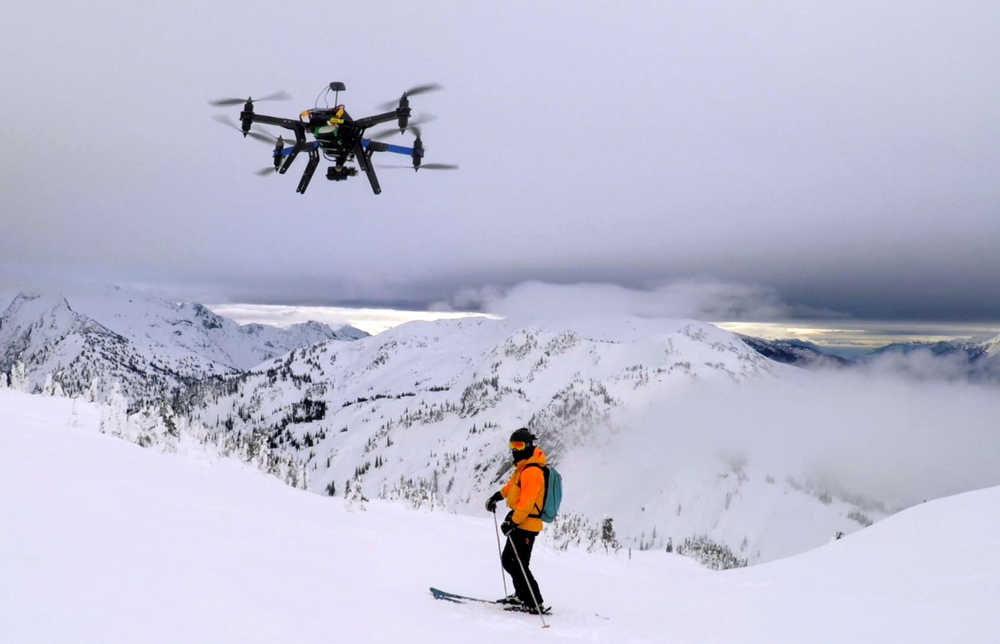DENVER — A drone hovers about 30 feet above the skier’s head, then quickly swoops down for a tighter angle so its video camera can capture his every move as he carves down a steep powder stash.
It’s not a scene from the latest Warren Miller movie. It’s something the founders of a Silicon Valley production company hope to bring to a ski resort near you — allowing customers to get the ultimate selfie in a “drone zone.”
Louis Gresham, co-founder of Cape Productions, said the year-and-a-half-old company has partnered with eight resorts in the United States and one in Canada.
“Video is almost the new currency. Everyone wants pictures of themselves,” he said, citing the popularity of GoPro adventure cameras and phone apps like Vine, Snapchat and Instagram. “All these companies are trying to give people tools to better broadcast themselves.”
At U.S resorts, Cape Productions is expected to charge between $100 and $200 for a photo shoot that includes three runs. Within 48 hours, customers get a one-and-a-half- to two-minute, professionally edited video that incorporates aerial and landscape footage, music and shots from stationary cameras.
“We have a lot of creative freedom to get different angles of skiers as they are going down the mountain,” Gresham said. “The sky is the limit for drones.”
Cape Productions, which is backed by more than $10 million in venture capital, received full permission from the Federal Aviation Administration in October to fly the drones, which cost about $4,000 each and are about the size of a large crow.
Gresham said only one drone would be in the air at a time on one designated run, and as far as privacy is concerned, it would be unlikely any other skiers or snowboarders would be in the shot.
“People think of this ‘drone-pocalypse’ and there will be drones flying everywhere. Not at all,” he said. “We would hate to have drones flying around everywhere.”
Initially, the drones are expected to take flight in December at Homewood Mountain Resort and Squaw Valley in northern California, both of which are on private land. But it could take longer to get permission to fly them at other U.S. resorts, many of which operate on public land and would need U.S. Forest Service approval.
Steve Hurlbert, a spokesman for Colorado’s Winter Park Resort, which sits entirely on public land, and, like most ski resorts bans the use of drones, said everything is contingent on approval by the Forest Service. It’s still too early to know if drones will be featured at the resort.
“We’re just trying to figure out how to take advantage of the cool technology,” he said. “Anything we want to implement from a technology standpoint is to enhance the guest experience.”
Feedback to the possibility of drones buzzing Winter Park’s slopes has been mixed, Hurlbert said, but there is no denying that the demand

